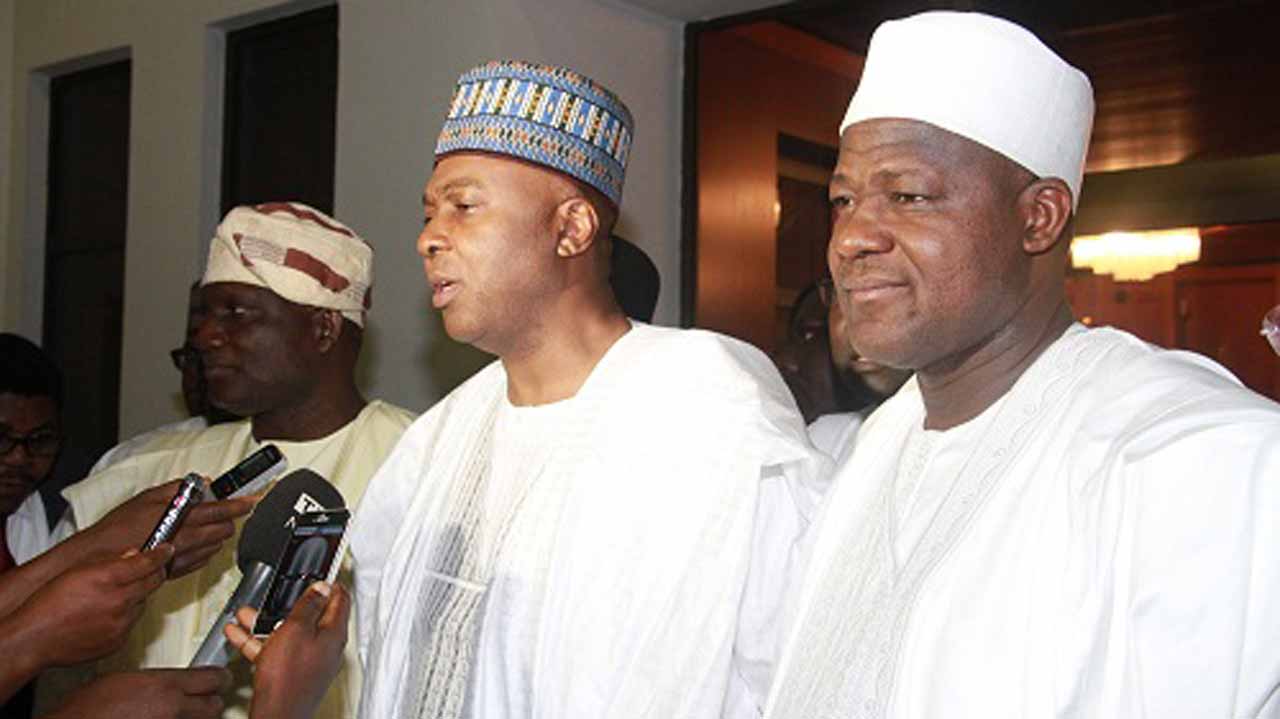Court weakens National Assembly, rests elections re-ordering bill but…
The Federal High Court in Abuja on Wednesday temporarily ended ongoing move by the National Assembly to re-order the general election sequence, saying the bill was in clear breach of the provisions of Paragraph 15(a) of the Third Schedule of the 1999 Constitution which empowered INEC to organise and conduct elections.
However, a source confided in our correspondent that a set of aggrieved party to ruling is likely to approach the Court of Appeal before the end of this week, challenging the ruling.
Observers say the aim of the National Assembly in re-ordering the election sequence is to end the incidence of bandwagon effects of presidential results on other elections within an election season, thereby intimidating voters to follow the trend of presidential result in voting subsequently.
In his judgment, in the suit filed by the Accord Party challenging the bill, Justice Ahmed Mohammed held that the bill was in clear breach of the provisions of Paragraph 15(a) of the Third Schedule of the 1999 Constitution, stressing that INEC, having issued its timetable for the 2019 general elections, the later passage of the bill to reverse the electoral body’s decision was in breach of the principle of separation of powers as provided under sections 4, 5 and 6 of the 1999 Constitution.
Besides, the court noted that the powers conferred on INEC to conduct elections comprise the powers to decide the sequence of the elections and fix dates for the conduct of the elections.
While making it clear that such constitutional power could never be taken away by an Act of the National Assembly, Justice Mohammed averred that all the issues formulated in favour of the plaintiff and against the National Assembly.
Though the court failed to grant one of the prayers, seeking to President Muhammadu Buhari from assenting to the bill, the ruling relied its ruling on the fact that it was no longer necessary to grant such prayer since the President had refused to give his assent to the bill.
The plaintiff’s lawyer, Chief Wole Olanipekun (SAN), agreed with INEC’s lawyer, the AGF, Mr. Abubakar Malami (SAN); and INEC’s lawyer, Mr. Femi Falana (SAN) that the sole responsibility of INEC was to conduct elections into the various offices earlier mentioned.
The ruling in parts notes as follows” “I am left with no doubt that, in passing the Electoral Act (amendment) Bill 2018, the 1st defendant was in clear breach of the provision of Paragraph 15(a) of the 3rd Schedule to the 1999 Constitution. (as amended).
“In this regard, I find comfort in the interpretation of Paragraph 15(a) of the 3rd Schedule to the 1999 Constitution given in the case of NDP vs. INEC (supra) to the effect that INEC, the 3rd defendant in this case, has the constitutional responsibility of organising and conducting an election, and to that effect, it can issue timetable and it can also decide when election will hold.
“Now, since the 3rd defendant has already fixed the dates for the 2019 elections, it is the only body that can change the dates.
“The attempt made by the 1st defendant in passing Exhibit 1 (the Electoral Act Amendment Bill 2018) after the 3rd defendant has issued Exhibit 2 (the timetable earlier released by INEC for the 2019 elections) in clear and obvious breach of Paragraph 15(a) of the 3rd Schedule to the Constitution of the Federal Republic of Nigeria (as amended).
“I find the decision of the Court of Appeal in Musa vs. INEC (2002) 11 NWLR Part 778 page 223 and 296 paragraph C.
“Flowing from the above pronouncement, the power given to the 3rd defendant in Paragraph 15(a) of the 3rd Schedule to the Constitution to organise and conduct elections in Nigeria, including fixing dates for such elections, cannot be taken away by an amendment purported to be done by the 1st defendant in the Electoral Act Amendment Bill 2018.”
While noting that the court had the power to set aside or nullify any Act or Bill of the 1st defendant (the National Assembly) that contravened the provision of the constitution, the court further ruled that “In issuing the timetable, the 3rd defendant was carrying out an executive function. By trying to stop or reverse the decision of the 3rd defendant, the first defendant was clearly in breach of the principle of separation of powers embodied in sections 4, 5 and 6 of the constitution.
“Furthermore, the 1st defendant’s conduct, being in breach of Section 1(3) of the 1999 Constitution, it follows therefore that Section 25 of the Electoral Act Amendment Bill 2018 which is the section that contravened the constitution is hereby declared a nullity.”
Business Hilights recalls that the court had earlier dismissed the National Assembly’s notice of preliminary objection praying for the dismissal of the suit and ruled that it dismissed all the grounds of the objection.









